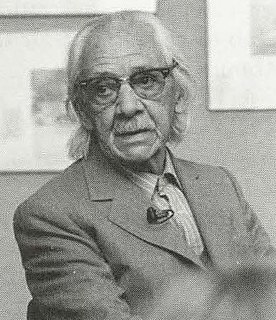A Quote by Carl Jung
Mind and matter are two different aspects of one and the same thing.
Quote Topics
Related Quotes
Since psyche and matter are contained in one and the same world, and moreover are in continuous contact with one another and ultimately rest on irrepresentable, transcendental factors, it is not only possible but fairly probable, even, that psyche and matter are two different aspects of the same thing.
The problem comes up because we ask the question in the wrong way. We supposed that solids were one thing and space quite another, or just nothing whatever. Then it appeared that space was no mere nothing, because solids couldn't do without it. But the mistake in the beginning was to think of solids and space as two different things, instead of as two aspects of the same thing. The point is that they are different but inseparable, like the front end and the rear end of a cat. Cut them apart, and the cat dies.
One could think of a person who seems to have two opposing and contradictory sides to his personality; but it turns out that in the end the two sides are complementary. The same happens with an artist's work: deep down, what appear as contradictory sides are merely different registers, different aspects of the reality that the artist inhabits
There appears to be but two grand master passions or movers in the human mind, namely, love and pride. And what constitutes the beauty or deformity of a man's character is the choice he makes under which banner he determines to enlist himself. But there is a strong distinction between different degress in the same thing and a mixture of two contraries.
One way of saying that is that there is an objective reality beyond our mind. A way to think of this in a philosophic sense is to look between the two great extremes: the idealist philosophy that says mind and consciousness is the only thing and that matter is simply an illusion, or a Maya, the product of mind; and the other extreme, a strict materialist determinism, which says that mind and consciousness is a secondary phenomenon of the collision of matter.
Producing and deejaying are two different outlets to the same creativity. When I'm in the studio I get to create and go through my process. When I'm on stage I get to share the results of that process with everybody. It's two different experiences but they both go back to the same thing and I love them both.
The differing opinions regarding the gospel are often categorized as different variations of the same truth, or coming at the same truth from different angles, or even emphasizing different aspects of the same truth. This fails to recognize that the different 'variations' are often altogether different gospels. The Reformed gospel is completely different from the Roman Catholic gospel; a faith-based gospel is in direct contradiction to a works-based gospel; a truly evangelical gospel stands in contrast to an ultracharismatic gospel.




































